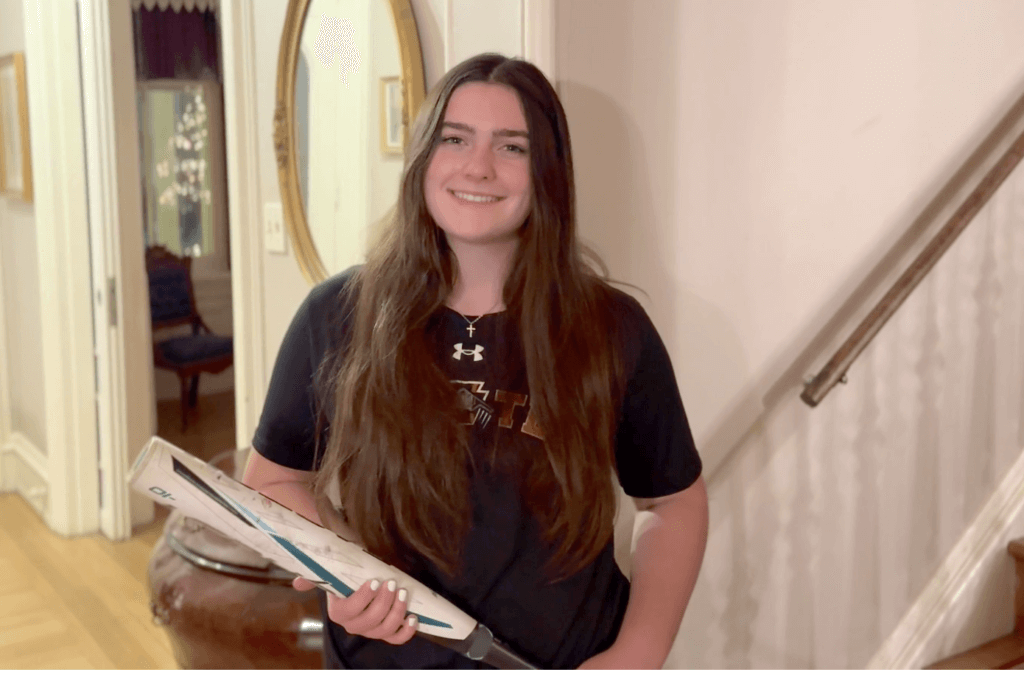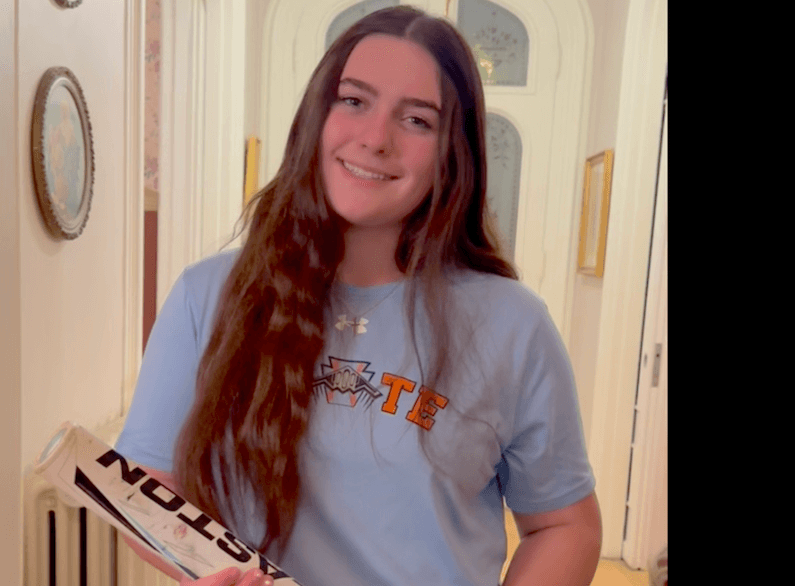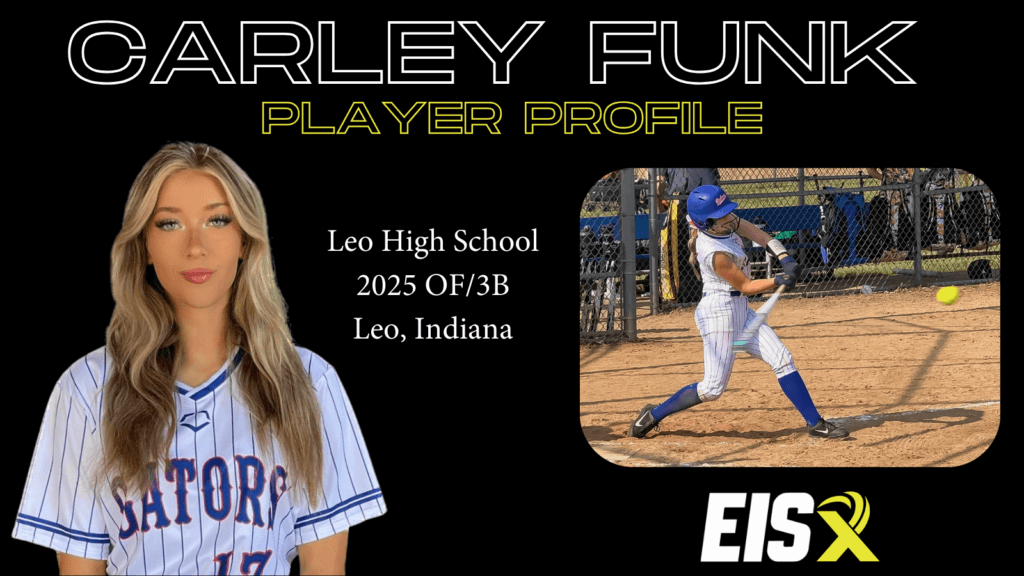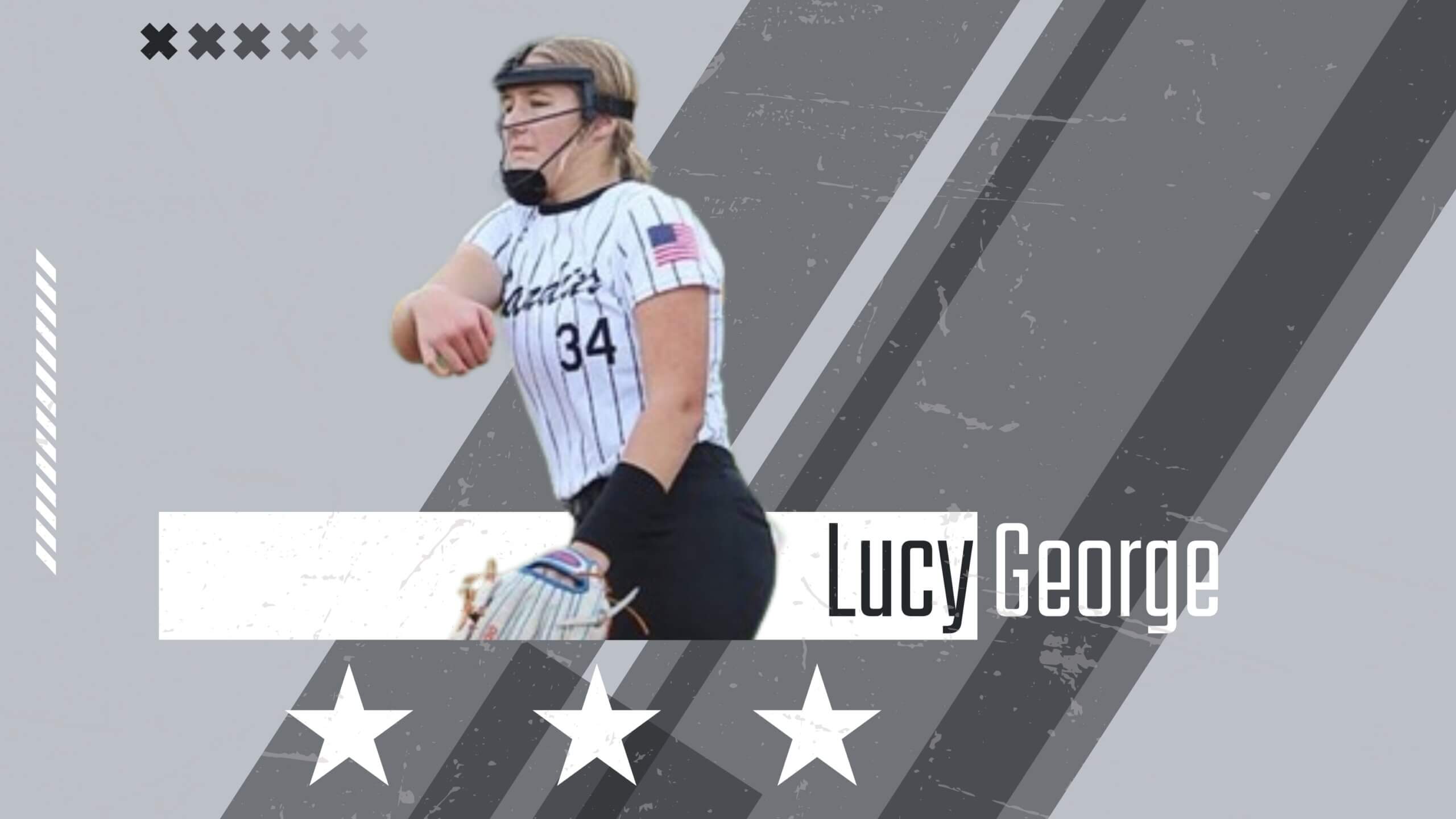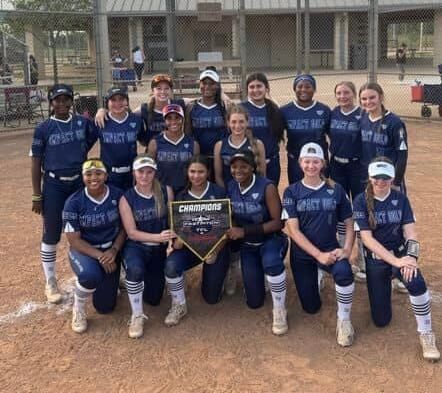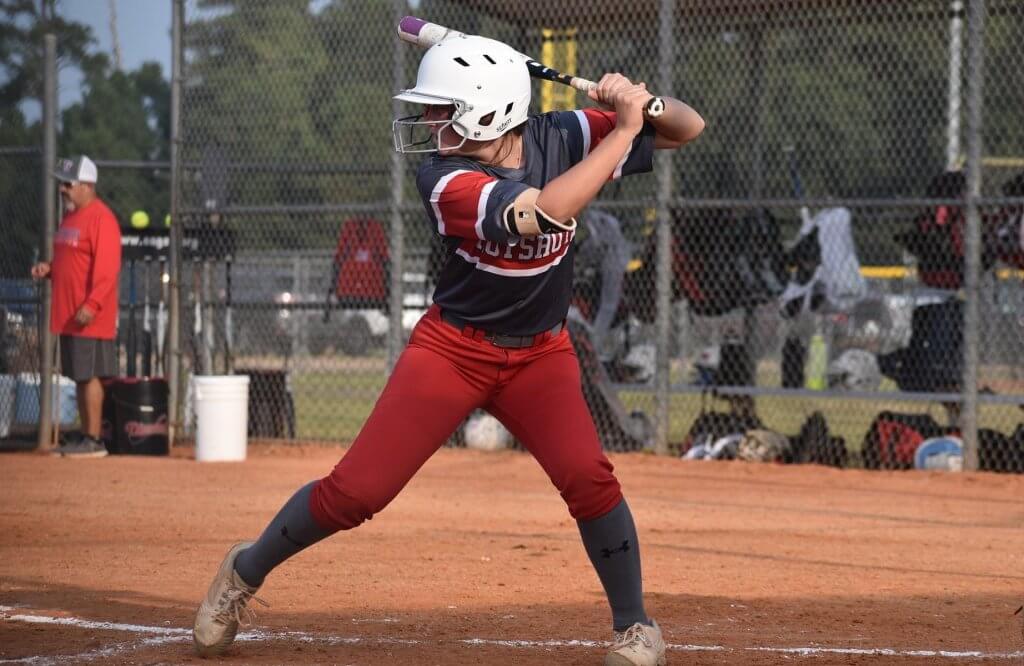
We continue our list of the Top 15 Softball Stories of 2020, which will run through December 31st when we’ll present our No. 1 story of the year.
Here are the previous stories (clink on link to read):
- #15… NCAA Allows College Athletes to Be Compensated for “Their Name, Image & Likeness”
- #14… The Emotional Tribute for Texas Tech Signee Jaycee Hamlin
- #13… Two USC Union College Teammates Killed in Car Accident by Drunk Driver
- #12… USA Stand Beside Her Tour… Great Start for Team USA’s Barnstorming Event
- #11… The Scrap Yard Dawgs Tweet Controversy & the Quick Dissolution of the Pro Team
- #10… Maggie Bowle’s Softball Career Was Short… but Her Legacy Lives On
- #9… The Explosive Growth & Impact of AthletesGoLive
We’ve surveyed the softball community and talked internally as well to come up with what were the most impactful and relevant stories of the year pertaining to the world of fastpitch softball.
Where applicable, we are providing the text to the original articles and/or references when the story first happened.
- Click Here to see the Top 15 Stories of 2019
- Click Here to see the Top 15 Stories of 2018
Today’s story… … #8: Recruiting changes due to COVID-19
If you haven’t noticed by now, the 2020 softball calendar was mostly wrecked by the year-long Coronavirus which really exploded in March leading to the cancellation of high school, college and pro seasons early in the year.
The club world found a way to continue on in various forms throughout the year and high school ball picked up in the fall, but still, the COVID-19 pandemic forced the sport to morph in many ways, especially in recruiting.
How?
For one, the Dead Period (when coaches and prospective recruits are prohibited from meeting in person) was extended no less than six times and, with no face-to-face contact, more than a few student-athletes committed without ever having visited their future school or doing it in-person.
Here are some examples of how recruiting was altered, especially for 2021’s and 2022’s, over the last year…
To provide comments, insights or thoughts, email: [email protected].
*****
Breaking News: NCAA Extends Dead Period Through April 15, 2021
Originally published Nov. 18, 2020 on Extra Inning Softball
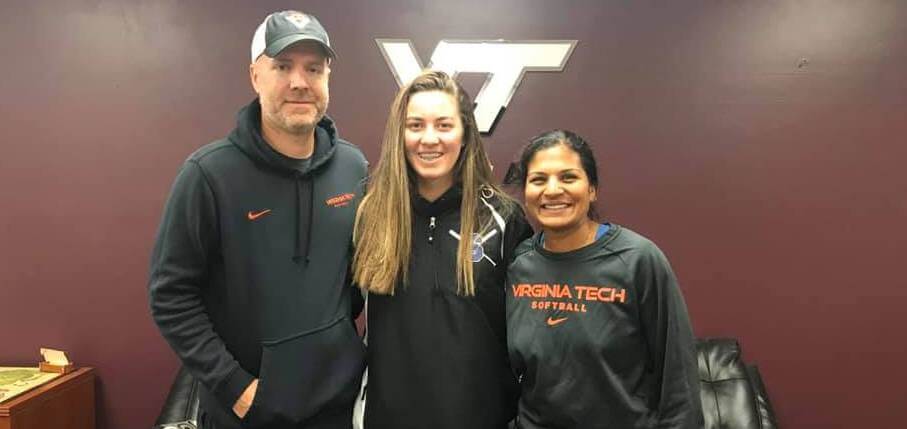
A week ago today, Dennis Dodd of CBS Sports reported that the NCAA dead period, which has been in place since March because of COVID-19, will be extended well into Spring of 2021 in an article titled Recruiting dead period will be extended to April 15, keeping coaches away from recruits for over a year.
We talked to several club and college coaches over the weekend who had heard the same news and Robby Wilson of NSA, in his Inside Pitch article on Tuesday about the Current State of College Softball Recruiting, wrote:
“… everyone is up in arms trying to determine whether or not the NCAA D1 dead period will get extended. I can’t say much, but there will be a vote tomorrow (November 18) that will answer everything.”
That question was answered today as the NCAA Council approved the move pushing the dead period back from Jan. 1 to April 15
DI Council extends recruiting dead period for all sports through April 15: https://t.co/znkRinZ2CQ pic.twitter.com/36C4JP5cip
— Inside the NCAA (@InsidetheNCAA) November 18, 2020
It was previously set for New Year’s on Sept. 19, 2020 as detailed in our article: College News: As Expected, Recruited Dead Period Extended Again… Through Jan. 1, 2021 which was the 6th time it had been extended.
As we wrote then:
“What this means, simply, is there can be no in-person or face-to-face contact between the prospective recruit and families with college coaches, although communications still can occur through phone calls, emails, FaceTime, Zoom meetings, etc. Athletes still can visit college campuses, but can’t have direct contact with coaches.”
Dodd added: “The date has been extended multiple times as COVID-19 has swept across the country in the last nine months. This next extension would mean coaches will not meet in person with recruits for more than a year”.
“Since spring prospects have also been prohibited from making official visits on campus because of the coronavirus, there is momentum to expand the use of Zoom,” the writer adds. “For example, perhaps coaches could ask the NCAA to allow parents to interact on Zoom and compare notes about the recruiting process. That suggestion was made by Todd Berry, executive director of American Football Coaches Association.”
Here is the full release from the NCAA which was published this afternoon on NCAA.org:
*****
Recruiting dead period in all sports extended by DI Council
November 18, 2020 6:20 pm EST
The Division I Council on Wednesday extended the recruiting dead period for all Division I sports through April 15.
 “The COVID-19 numbers are not trending in the right direction for the Council to allow in-person recruiting and the associated long-distance travel for coaches, prospective student-athletes and their families,” said Council chair M. Grace Calhoun, athletics director at Pennsylvania.
“The COVID-19 numbers are not trending in the right direction for the Council to allow in-person recruiting and the associated long-distance travel for coaches, prospective student-athletes and their families,” said Council chair M. Grace Calhoun, athletics director at Pennsylvania.
“We acknowledge the impact the restrictions are having on student-athletes who dream of being Division I athletes, but we must prioritize the health and safety of current and potential student-athletes and their families, as well as coaches and others on campus.”
Members also voted to permit additional flexibility in virtual recruiting in football by allowing all coaches, full-time school staff members and current students to conduct recruiting calls (telephone calls and video calls) without a countable coach being present.
This flexibility, proposed by the Football Oversight Committee, includes volunteer coaches in the Football Championship Subdivision. The Council plans to address similar flexibility for other sports at its December meeting.
The dead period extension was supported by the oversight committees for football, men’s basketball and women’s basketball. Members acknowledged that while Divisions II and III had loosened recruiting restrictions, Division I schools are managing active fall sport seasons, which is not the case at most schools in Divisions II and III.
*****
Inside Pitch: 2022 IF/OF Emma Tatum Commits to Kansas… Without Ever Having Been on Campus!
Originally published Oct. 10, 2020 on Extra Inning Softball
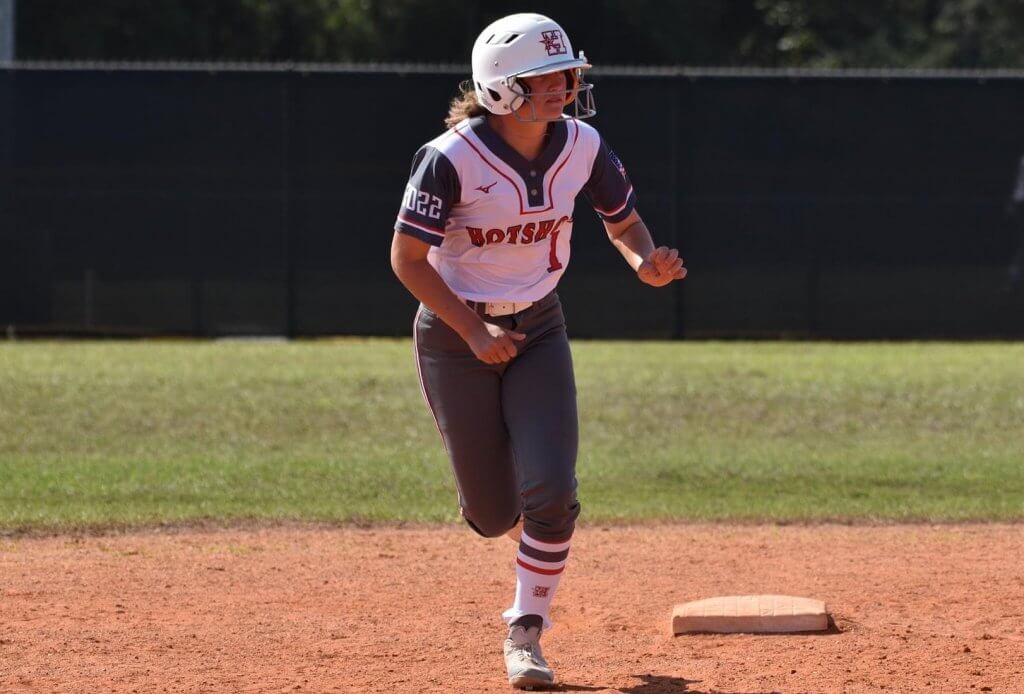
The COVID-19 pandemic has certainly made softball recruiting a wild and crazy ride over the last year.
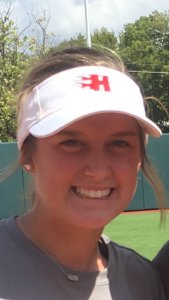
With the Dead Period—where DI coaches can’t have in-person or face-to-face contact with prospective student-athletes and their families—being pushed back six times this year, the latest extending it to Jan 1, 2021, it’s created some unusual situations with players committing.
We’ve seen more than a few cases where players have been offered and verbally committed without having been to their future university and that’s the case with talented 2022 infielder/outfielder Emma Tatum, who attends Huntington (Texas) High and plays for the Hotshots Premier HTX 16U team.
The junior who carries a 5.39 GPA and was Class President last year, wrote us on Thursday explaining:
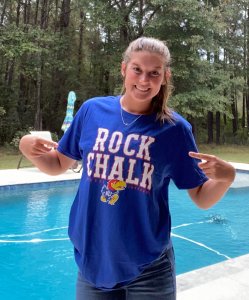
“I have not actually been to Kansas yet, which is also part of the story; of all the camps I went to, Kansas was always the camp that I could never go to. God’s plan and timing is amazing!”
Emma continued:
“I am scheduled to go to Lawrence, Kansas, in two weeks and take an academic tour (Jayhawk Days) as the school is hosting in-person visits in their admissions department. I won’t be able to meet with coaches or visit athletic facilities because of the Dead Period, but I will at least have the opportunity to see the community and campus and my future home!”
The Texan, who was selected as the Newcomer of the Year in District 20-4A as a freshman, talks about her recruiting journey here and what made her fall in love with the Big 12 university prior to her first trip to campus…
I am extremely excited to announce that I will be furthering my academic and softball career at the University of Kansas! ROCK CHALK JAYHAWK ❤️💙 pic.twitter.com/mcEHjdaPb3
— Emma Tatum (@EmmaTatum16) September 5, 2020
*** Scroll down to read about the main factor that sold Emma on KU…
*****
Recruiting News: Kayla Chavez Commits to Minnesota Via a Zoom Call!
Originally published Aug. 31, 2020 on Extra Inning Softball

It’s a sign of the times when athletes are restricted in visiting college campuses or meeting in person with their future college coaches due to the COVID-19 pandemic and the extension of the NCAA dead period.
That, however, didn’t stop one enterprising verbal commit from getting it done—even though she has never stepped foot on her future school’s campus!
Kayla Chavez is a third baseman/shortstop with one of the top club teams in the country, Athletics – Mercado/Greg and has been a member of the 2021 Extra Elite 100 class in the past.
Last Thursday evening (August 27, 2020), Kayla verbally committed to the University of Minnesota through a Zoom meeting, according to her mother Amanda Chavez, who said, “She committed online since the NCAA extended the dead period, otherwise she would have loved to be on campus accepting the offer. She can’t be more excited to become part of the Golden Gopher family and is looking forward to playing for some amazing coaches!”
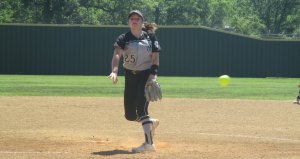
One of the benefits of heading to the Big Ten program is Kayla will get to play with club teammate and fellow Minnesota commit Emily Leavitt, who was highly sought-after by top colleges nationwide as well.
Kayla has had a great career at Chino Hills (California) High where she has earned honors such as CalHi Sports 1st Team All-State, Daily Bulleting All-Area 1st Team and Inland Express Girls Athlete of the Year.
An outstanding hitter, she had one week as a sophomore when she went 5-for-5 with three home runs, a double and single in one game and went 2-for-3 with a home run in the second game.
Her 2020 junior season was cut short by the Coronavirus after just 10 games played, but in that time she batted .562 with home runs. This summer, playing in events in Oklahoma, Arizona and Utah with the Athletics, Kayla hit .516 (31-for-60) with six home runs and eight doubles.
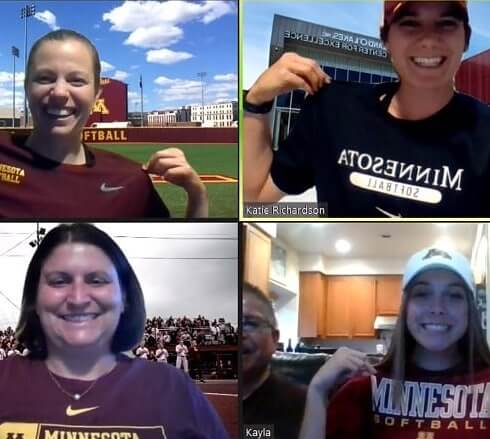
As for her recruiting process with the University of Minnesota, Kayla admits it was “a little different due to COVID-19. There were a lot of texts, phone calls and zoom meetings, but the coaches did an amazing job showing off what the university has to offer, since I wasn’t able to visit the campus due to the NCAA dark period.”
In the Zoom call with Gopher coaches Piper Ritter, Carly Wynn and Katie Richardson last week, Kayla made the staff quite happy when she told them: “It would be an honor to play for the program and I am so excited to become a Golden Gopher!”
Scroll down to read more about how Kayla became a Gopher commit!
*****
Inside Pitch: The Current State of College Softball Recruiting
Originally published Nov. 17, 2020 on Extra Inning Softball
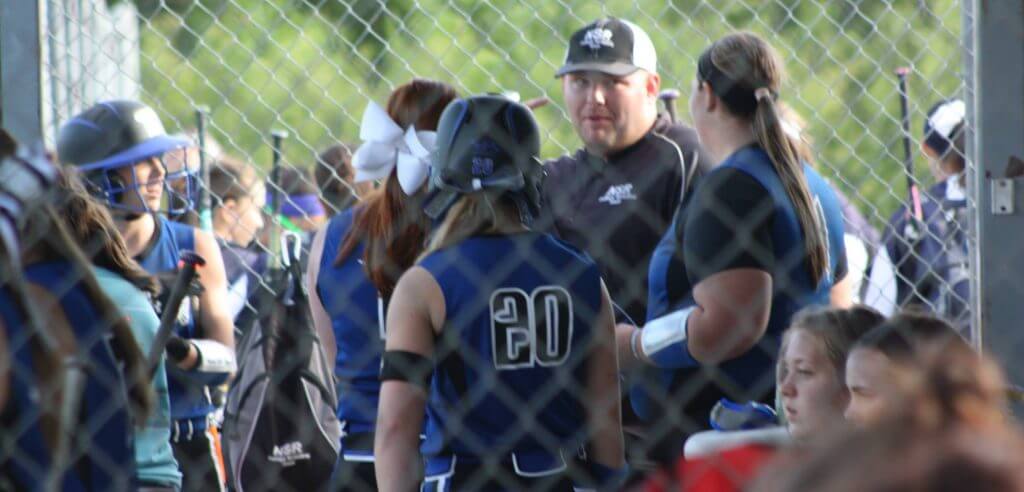
Coach Robby Wilson is the National Director of Softball Scouting for National Scouting Report (NSR) and is in constant contact with college and club coaches nationwide.
He has a unique perspective on all things fastpitch softball and shares his thoughts in this extensive report on where softball recruiting currently is as we enter the holidays and end of the year.
*****
We are just a little over a week from Thanksgiving 2020, and I think every college softball prospect, set of parents, college coach and scout that I know of are paying attention to how many days until the year 2020 is over, given the ups-and-downs and all-around confusion 2020 has brought us!
What a crazy year 2020 has been with the COVID-19 pandemic, the nationwide quarantine restrictions, the ending or shortening of seasons, and the flat-out killing of most college coaches’ abilities to scout athletes in person.
Rewind a little over three years ago when the D1 recruiting restrictions were approved with the intention of slowing down recruiting—it did to a fair extent, but what it did for the other divisions was to speed up their timelines of looking at some kids younger than they typically would.
That’s not to say that we didn’t eliminate the recruiting of the 7th grader, because for the most part, it did. The elite of the elite can still get on some coach’s boards, but nobody is offering and committing the 7th grader anymore.
THE IMPACT OF COVID-19 ON RECRUITING
With NCAA D1 restrictions in mind, fast forward to March of this year when the “tornado” that is the COVID-19 pandemic rocked America and threw the whole world into a whirlwind… including the softball world.
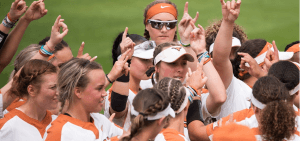
From March until June, almost every coach was confined either to his or her office or home and college softball prospects were left to only have the option of being recruited via video and a good door opener a.k.a. connected individual.
Coaches were forced to either create or further use the virtual visits that were previously used and intended for athletes on the other side of the country or even players out of the country. The result has been that kids have made decisions based on virtual visits without getting on campus or having a chance to even drive around the town that will live in at some point in the future.
Previously “closed doors” of a coach’s recruiting needs for a particular class suddenly opened back up, but, in return, some coaches with pre-existing needs for the next recruiting class saw that disappear as a result of the extra year of eligibility for current players coming into play.
The result: rosters got bigger while budgets were being cut.
We saw more 2020’s commit earlier this year than we have ever seen seniors do so before, taking themselves out of the recruiting equation for fear that, because they had reached the final semester of their senior year and had gone unrecruited, they had to take whatever they could.
I personally even received messages from 40 or 50 seniors that I was interested in helping in the recruiting process who had decided they were no longer interested in playing college ball anymore because of the complications of recruiting and all of the COVID risks that came with it.
From the summer through the majority of this fall, almost weekly, I am hearing the same from a lot of 2021’s as well: the fear they have of being actively engaged in the process and not being recruited. That is scarier to them than to have dealing with the regret of not pursuing the dream. It is another unfortunate circumstance of COVID-19.
CHANGE IN CLASS FOCUS & NEEDS
From behind the scenes, I can tell you that there has been a more increased focus on the 2023 and 2024 classes, and, yes, there are fewer coaches in need of a 2021 and some 2022’s, but that is NOT to say that there are NO coaches still needing current seniors and juniors (‘21’s and ‘22’s).
You simply just have to know where to look!
The fact of the matter is that the 21s and 22s still being recruited have a couple of elements in common:
First, they have the “ gate opener,” someone advocating for them who is in the know with what collegiate programs do have a need for their graduation year and position as well as whether or not that coach typically recruits the athlete’s style of play and if the school would be a good fit for that particular prospective student-athlete… and vice versa.
Second, the ’21’s and ’22’s still being recruited—even with the smaller number of programs having a need for them—are the kids that have their academics in order, including test scores.
Although the NCAA may have waived test scores necessity for eligibility for certain classes, that does not negate the fact that the ACT or SAT score, in addition to the recruit’s GPA and class rank, can help facilitate the financial aspect of them getting recruited more than anything else.
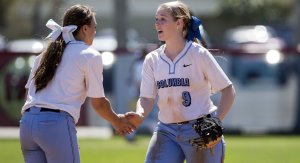
If, on average, every two points on the ACT equals $20,000 in savings over a four-year period of time, then it behooves every kid to put as much effort into their test scores as they are into their craft and the classroom work!
A perfect example from the last few weeks involved one of my 2022 prospects, who got the call from her No. 1 program. She was ecstatic, of course, but also confused.
The coach called to let her know how badly they wanted her and that they were absolutely offering a spot but are out of money for that class. That doesn’t change the fact that they have a huge need for her but—for the first year at least—they are not going to have any money to extend to her.
Fortunately, this student-athlete has a 4.1 GPA and a 31 ACT which, at this particular school, gets her a completely full academic ride! Thus, while there may be any athletic money involved initially, the player will not have to pay a dime.
Sometimes it’s hard for the prospects and even the parent to understand that the amount of athletic money available via scholarships does not dictate the amount of love or interest a coach has in the prospect.
In all of my years of scouting I have never once come across a coach who “lowballed” a kid and then tried to bid on them later when other schools become involved. The truth of the matter is the coach is going to offer the athletic money that he or she had allocated for that particular player (with the notable exception being, like now, when a worldwide pandemic such as the one we’re experiencing today comes along and provides a path for current collegians to receive an extra year of eligibility and money).
ADAPT… OR DIE
The current state of recruiting is unfortunate, but it is like anything in life: you “either adapt or die.” In college softball recruiting, it is a sport of continuous changes and to stay up on those changes and have the most relevant information, as well as accurate pathways to achieve what you are trying to do, is monumental.
Coaches across the board from every division have been forced to implement some level of budget cuts and a few programs have even been annihilated completely. There are coaches who have struggled to keep their assistant coaches—not just because of the budgets cut, but because of the loss of camp and other additional revenue providers
Unfortunately, NCAA Div. I coaches still cannot work camps, so some of the assistants on college softball staffs are losing a big chunk of their income. That is not to say all programs… but there are a lot.
And with the NCAA D2, D3, juco and NAIA programs, you may be talking about smaller budgets because of all of the repercussions of COVID, so now the amount allocated to travel expenses and the ability for these coaches to scout as they have previously, has been somewhat minimized.
4 KEYS TO GETTING RECRUITED
When you consider all of this, at the very least since June of this summer, it is pretty easy to see where things are headed when you are in my shoes, including the commonalities that enable me to predict how things are going to trend.

Some areas aren’t necessarily new but are ones that have increased in the level of importance.
The things I am about to list are not new and have now become so important that they are a humongous deciding factor on whether or not you are recruited… and to what extent you will be recruited.
I highly advise putting your efforts into ensuring these things over the 6-to-24 months:
-
Video
When it comes to video, I am referring to the prospect obtaining video multiple times a week which includes game footage, training at home, training at lessons, team practice and any opportunity to obtain images and get them to the coach in the case that they were not able to watch the previous ones sent.
-
Streaming
In the second reference to video, this one is going to be hard to hear. But with the large number of schools that either are restricted from scouting in person such as the Division I programs, or don’t have the budget currently to go all over the place to see all of the kids they need to, the emergence and widespread popularity of streaming has become extremely key over the last 4-to-6 monhts.
Make no mistake, you do not have to have an account with a streaming service for a coach to watch. Does it help if you have one of these for your team? It does, but if used adequately and maintained, it can be accomplished by using your team’s Facebook page just as easily.
Trust me I have seen it for myself since the beginning of the summer with the hundreds of coaches communicating with me about watching my kids because they could not attend an event. While some teams that my prospects were playing on had a streaming service, others did not and simply used their teams Facebook page. It does not matter where it is coming from as long as it works and is reliable.
-
Camps
Camps have always been an integral part of the college softball recruiting process. But if this summer made something abundantly clear, the Div. II programs were not allowed to go scout the tournament or showcase but they were allowed to go work the showcase camps.

And the plethora of the kids that I had attend those camps were not only recruited by the Div. II programs that were able to attend, but by the Div. III, NAIA, and Jucos. The camps throughout the fall—as long as they weren’t canceled because of COVID-19—have still been extremely productive for the prospects.
But if there is one thing that has been echoed by every coach of every division it is that, with the exception of the DI programs, November and December camps will be extremely crucial for college softball prospects and therefore, there will be anywhere from four or five different camps of schools that Susie is interested in having camps on the same weekend.
Unfortunately, this will not get easier after the winter (and perhaps spring) assuming that the DI dead period goes on significantly in 2021.
-
Gate Openers
Although it may seem obvious, having someone who is experienced and connected and can alleviate some of the stress and wasted efforts is a huge advantage.
Even if the coaches can’t come out to watch you, the most important thing is that every move you make should be productive and have an end result. If you go to a showcase, at the end of the weekend you should have an idea of who is looking at you and who has decided not to move forward.
If you are looking at what camps to attend, it can be confusing because there are possibly several camps on several weekends. Knowing which one you should and should not be attending can be based on the accurate level of play, the fit, and whether or not that coach has legitimate interest in you. This is where having the right person in your corner comes in the play.
STREAMING… A VITAL PIECE
It might surprise you to know how many teams still did not stream this summer or this fall.
And while those coaches may be great coaches and great individuals, they are doing their team a disservice. Make no mistake, streaming is not the end-all solution. If streaming alone would get you recruited, then the majority of prospects reading this would already be committed based all the coaches who watched their team stream this Summer and Fall.
On any given weekend I would have prospects of mine message me saying that anywhere from five to 15 different colleges were watching their stream. But if streaming was the only key to getting recruited, everybody who streamed this summer and this fall would be offered and committed by those schools.
Often times, the coaches “watching” were actually watching another girl or even the other team. The important piece here or is that streaming is absolutely going to be a vital piece moving forward in college softball recruiting, not just for the next several months, but I believe for the next several years.
It is a piece to the puzzle that, standing alone, solves nothing. However, in coordination with those other points above, it can allow you to accomplish what you were trying to accomplish during one of the hardest recruiting seasons I can remember. Each of those four puzzle pieces above are crucial and necessary in finding success in recruiting.
THE ONLY CONSTANT… IS CHANGE
If there is anything else that I can leave you with it is this: Be active but be patient!
Almost every other day I am hearing from 50 to 100 different coaches that are having their needs change for different recruiting classes. They needed a 2022 catcher and now they don’t; now they need a ‘22 shortstop. And so forth.
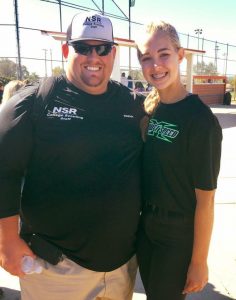
With the signing underway for the seniors (2021’s), as well as the end of the fall coming and exit meetings for current college players coming, transfers are going to be all over the place and therefore, more opportunities for not only the obvious transfer portal kids and junior college kids, but also legitimate ‘21‘s and possible ‘22’s.
If, hypothetically, I am a solid Div. II program and I have my No. 2 pitcher transferring out at semester in December, I know I need to do my best to find another pitcher at semester so, while the transfer portal is an option, it’s more likely that I am picking up a solid Juco kid.
Furthermore, that increases the need for me to have a legitimate 2022 arm because that Juco kid will give me a couple of years but will be done by the time my 2022 class comes in.
I could turn this table in circles with explanation after explanation and example after example. But the take-home here has to be those four puzzle pieces above, in addition to being very active while being very patient.
CHANGES ARE COMING
One thing is for sure: a lot is going to change over the next 60 or 90 days! Previously closed doors will open as they always have, but even more so this year.
The 2020 year may have been rough for everybody, in life as well as in softball recruiting. But just like everything else in life, you either adapt to the circumstances or you fizzle out and fail. The choice is up to you.
And, just like in life, the most successful people are not necessarily the most talented or most intelligent all of the time. They are the people who maximize their resources and rather than giving up, they pivot.
Lastly, everyone is up in arms trying to determine whether or not the NCAA D1 dead period will get extended. I can’t say much, but there will be a vote tomorrow (November 18) that will answer everything. Stay tuned for some of the upcoming info on my social media, or feel free to reach out. Again, it is simple: “hope for the best plan for the worst.”
If you want to learn more about where are you are at in the recruiting process or have questions about how COVID has affected your recruiting process, please do not hesitate to contact me personally anytime.
— Robby Willson, National Scouting Report (NSR)




